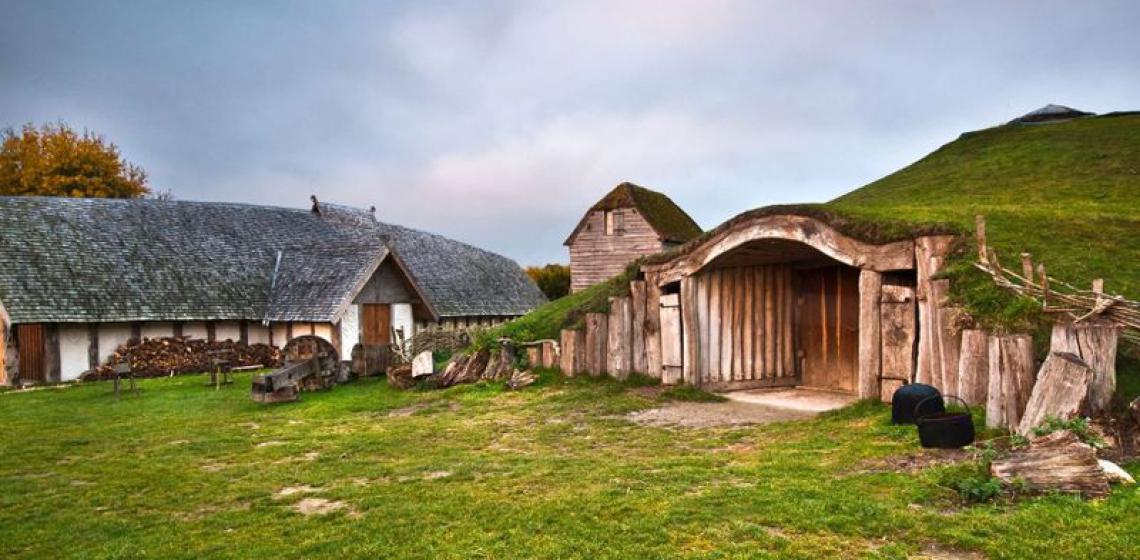
The Goal of the Ancient Technology Centre is to engage people of all ages in the daily life of our ancestors and to increase their understanding of the skills, resources and strategies available to them.
The ATC started as a school experimental archaeology project in 1985/6. A full size roundhouse was reconstructed by children. They were entirely responsible for the sourcing of materials and the construction process. The centre became part of Dorset County Council Outdoor Education in the early 1990’s. From this time the bulk of our work has been running educational visits for primary age school groups although we also work with college and university groups.
Building reconstructions are a continuous project at the centre using archaeological evidence from Britain and Europe. Living history is used to engage young people and is based on archaeological evidence with a reliance on local traditional crafts, skills and knowledge. Other than buildings, our experimental archaeology is quite informal. We have links with academic institutions such as Exeter University Experimental Archaeology Masters programme and Bournemouth University. Our primary experimental work has involved the reconstruction of buildings using a child and volunteer workforce. Timber framing, green wood working, woodland management, carpentry and blacksmithing are all involved in these structures and are carried out by visiting groups and volunteers. Buildings are not scaled down – but do take longer to construct due to the nature of our workforce.
We have six reconstructions of ancient buildings: a Viking Longhouse, an Iron Age Earth House, an Iron Age Roundhouse, a Roman Smithy/Workshop, a Mesolithic house and a Saxon Sunken Featured Building. Our residential longhouse is used for a living history experience where children and adults dress in costume and take part in daily tasks to provide food for the group and help us with seasonal tasks around the site.
Archaeology informs the activities and projects we currently undertake. Ecology and archaeology both contribute to our site and woodland management strategies. We work primarily with the British geographical area but with reference to global developments. Best available evidence is used regardless of geographical region to illustrate life in the past. Living history activities are numerous and contribute directly to the maintenance of the site, development of the buildings, or investigating daily life in the past. Our living history activities use materials gathered from our hedgerows and animals.
We hold seasonal open days as well as historically themed open weekends. We are running public skills courses throughout the year in traditional crafts and skills. We also hold storytelling/musical events for the public and hire out our site for private events throughout the year.

